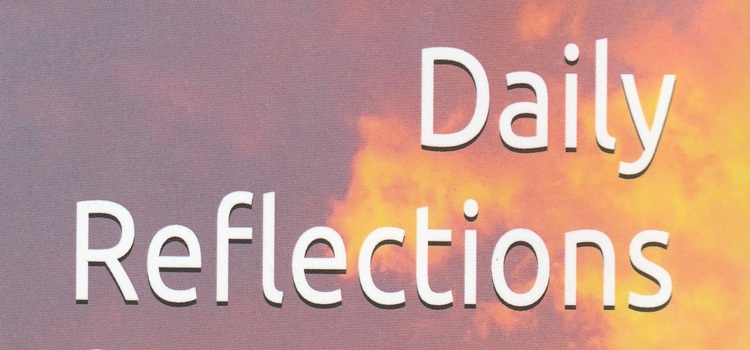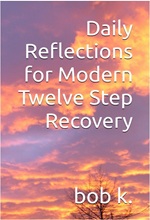Daily Reflections – by bob k.

February 16 Start where you are. Use what you have. Do what you can.
—Arthur Ashe 1943-1993
The advice from the great tennis player and civil rights activist applies particularly well in the world of recovery. At whatever age prospects arrive, there have been lost years and lost opportunities. Where you are is not where you want to be. Nevertheless, we must use what we have to do what we can.
People in recovery from addiction often bemoan the lost years—the wasted years. We hear abundant talk about acceptance and the ultimate in acceptance may come in not battling the seemingly obvious reality that the past is unchangeable. The rest of my life begins today. I need to start where I am. The Eckhart Tolle’s of the world tell us there is ONLY now.
The golfer Ben Hogan had a serious car accident that would have been a career ender for many and a career limiter for others. Hogan battled back and his greatest achievements came after the injuries that were sustained in the car wreck. Toronto Maple Leaf hockey player Bobby Baun fractured his leg in a game in the Stanley Cup finals. Instead of being carted off to the hospital, Baun scored the winning goal by staying and playing after having the leg “frozen.”
“Your present circumstances don’t determine where you can go; they merely determine where you start.”(Nido Qubein, Motivational Speaker, b. 1948) There’s not a lot of choice as far as starting where you are. Where else are you going to start? You either start where you are or you don’t start at all. Absent H.G. Wells and his time machine, these are the only options.
Is there any other choice but to start where I am? Can I make my many scars have value? When I can’t do everything, is it important to do what I can?
February 17 Self-control is strength. Calmness is mastery. You have to get to a point where your mood doesn’t shift based on the insignificant actions of someone else. Don’t allow others to control the direction of your life. Don’t allow your emotions to overpower your intelligence.
—Morgan Freeman b. 1937
According to the fact checkers at Snopes.com: “While it’s possible that Freeman might agree with various aspects of the sentiment of the quote, there is no evidence that he ever said these words.” Something quite similar was written many years earlier. “Self-control is strength; Right Thought is mastery; Calmness is power.” (As A Man Thinketh, James Allen, 1903) In any case, the point has been made that any quote’s contents are of greater importance than the source. I LOVE “It’s easier to put on a pair of slippers than to carpet the entire world.” Al Franken, not so much.
James Allen (1864-1912) tells us that “humanity surges with uncontrolled passion, is tumultuous with ungoverned grief, is blown about by anxiety and doubt…” There is a solution: “Only the wise man, only he whose thoughts are controlled and purified, makes the winds and the storms obey him…” These ideas seem to have migrated from the East. Over the years, there has been a glorification of vengeance in American culture. We’re slow in giving that up.
There’s a popular AA slogan EASY DOES IT. In my area, in the 1990s, the following interpretation was often presented. “EASY DOES IT: E-D-I: Emotions Destroy Intelligence.” This echoes the latter part of the Freeman quote.
Are you “quick to anger?” Is the negativity more obvious when other people “lose their chit?” Can an old dog learn new tricks?
February 18 The sway of alcohol over mankind is
unquestionably due to its power to stimulate the mystical faculties of human nature, usually crushed to earth by the cold facts and the dry criticisms of the sober hour. Sobriety
diminishes, discriminates, and says no; drunkenness
expands, unites, and says yes.
—Varieties of Religious Experience, William James, p. 282
We know from Wilson’s letters to Carl Jung and from a more lengthy exchange with a Philadelphian who had been treated by Jung, that “Bill revealed a very Jamesian understanding of the affirming, even mystical place of alcohol in the lives of many drinkers who became alcoholics.” (The Collected Ernie Kurtz, p. 66) Kurtz goes on to write that James’s greatest direct contribution to Alcoholics Anonymous was the openness to unconventional spirituality.
James wrote about alcoholism in his massive Principles of Psychology (1890): “How many excuses does the drunkard find when each new temptation comes! It is a new brand of liquor…moreover it is poured out and it is sin to waste it; or they are all drinking and it would be churlishness to refuse; or it is but to enable him to sleep, or just to get through this job of work; or it isn’t drinking, it is because he feels so cold; or it is Christmas day…it is, in fact, anything you like except being a drunkard.” (vol II, p. 565) His younger brother Robertson had a lifelong addiction to alcohol.
Although Bill Wilson attached cofounder status to the Harvard polymath, nowhere in AA’s literature do we find William James’s most famous line about alcoholism: The only radical remedy I know for dipsomania is religiomania. Kurtz says that most alcoholics would rather be drunk than religious. Bill W. understood that.
Were you, at least at one time, remarkably stimulated by drinking? More so than other folks? Did you try to quit drinking and then create ridiculous excuses to drink?
Bob’s newest book, Daily Reflections for Modern Twelve Step Recovery, published in January, is available on Amazon. And his other two books Key Players in AA History, the second edition published in 2023, and The Secret Diaries of Bill W., published in 2023, are also available on Amazon.
For a PDF of today’s article, click here: Daily Reflections.


























My two favorite (See, I’m American ) daily readers are Bob’s new book, of which I can’t say enough good things, and Beyond Belief, which has been my stalwart for several years. Can’t do w/o out either. Damned good men authored them both.
“You either start where you are or you don’t start at all.” “Not starting at all,” is really the saddest expression for how easy it is to waste a life. Recovery puts us in a position to see the actual power of making a beginning and how we take this simple decision for granted.
Thanks for all three reflections, Bob.
This was a treasure to read, thank you.